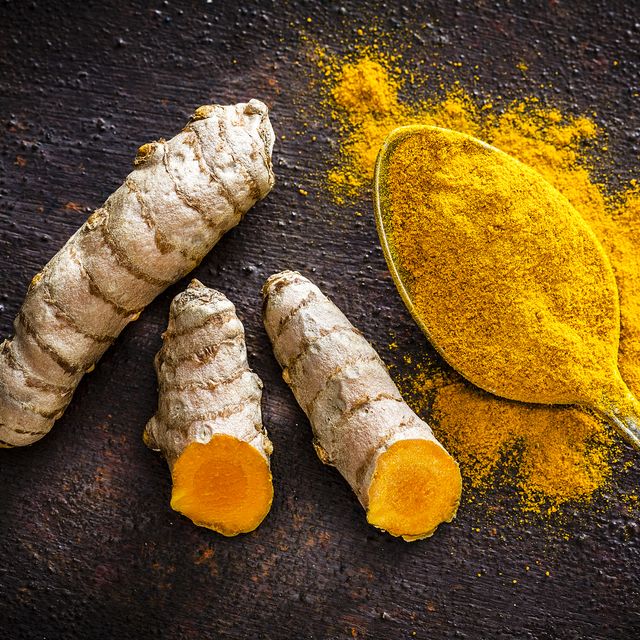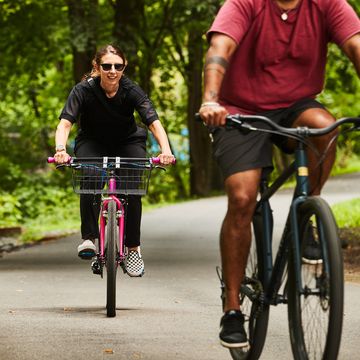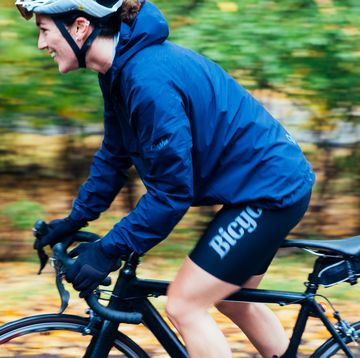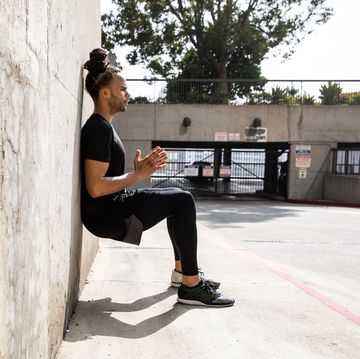- According to new research published in Critical Reviews in Food Science and Nutrition, turmeric could also help you improve muscle recovery and even boost overall exercise performance.
- The active compound in turmeric is curcumin, which has been associated in previous research with benefits related to cardiovascular and gastrointestinal function.
The familiar aroma of turmeric wafting up from curry blends could do more than whet your appetite—the spice could also help you improve muscle recovery and even boost overall exercise performance, according to a recent review in Critical Reviews in Food Science and Nutrition.
The active compound in turmeric is curcumin, which has been associated in previous research with benefits related to cardiovascular and gastrointestinal function, according to the lead author of the research, Lara Gomes Suhett, Ph.D.(c) of the Department of Nutrition and Health at the Federal University of Viçosa in Brazil.
In this recent meta-analysis of 346 studies—with 11 specifically related to people and sports performance—researchers looked at a wide range of curcumin supplement dosages, study timeframes, and outcomes like recovery, inflammation, and muscle soreness.
Suhett told Bicycling that although more research has been done on animals than in humans on the effect of curcumin on sport performance, this research review found numerous benefits, and no adverse side effects were reported in athletes and others who were regularly physically active.
This is most likely because of curcumin’s contribution to the reduction of inflammation and oxidative stress (a harmful chemical process), reduction of pain and muscle damage, improved muscle recovery, better gastrointestinal function, and even stronger psychological outlook, Suhett said.
While less is known about the psychological benefits, she pointed out that one of the studies they reviewed showed participants feeling better about stress during exercise than those who took a placebo. Suhett believes that should pave the way for investigations on the use of curcumin as a way to improve emotional wellbeing in all aspects of sport and exercise.
[Want to fly up hills? Climb! gives you the workouts and mental strategies to conquer your nearest peak.]
Another question for future researchers: How much do you need to see the benefits? In the recent review, Suhett said there was a range of dosages, and some were taken in combination with other compounds such as Boswellia extract, which is an herbal supplement. In general, though, the most common dose was between 180mg to 500mg daily and the period of supplementation was short—often for just a few days, or only after intense exercise. But the fact that researchers saw benefits from that is promising, she added.
“However, we still have to be cautious about recommendations because curcumin is not yet considered a sports supplement with the highest degree of evidence,” she added. More studies will need to be done to bring it to that level, but in general, the most promising results seem to be decreased muscle damage from training as well as reduced pain. Both are related to less exercise-related inflammation, said Suhett.
While more research will yield additional answers, this might be a cue to add a bit more spice into your life—or at least consider a post-ride curry dish.
“These studies showed significant results in sports and physical activity after supplementation for a short period of time,” she said.
Elizabeth Millard is a freelance writer focusing on health, wellness, fitness, and food.













